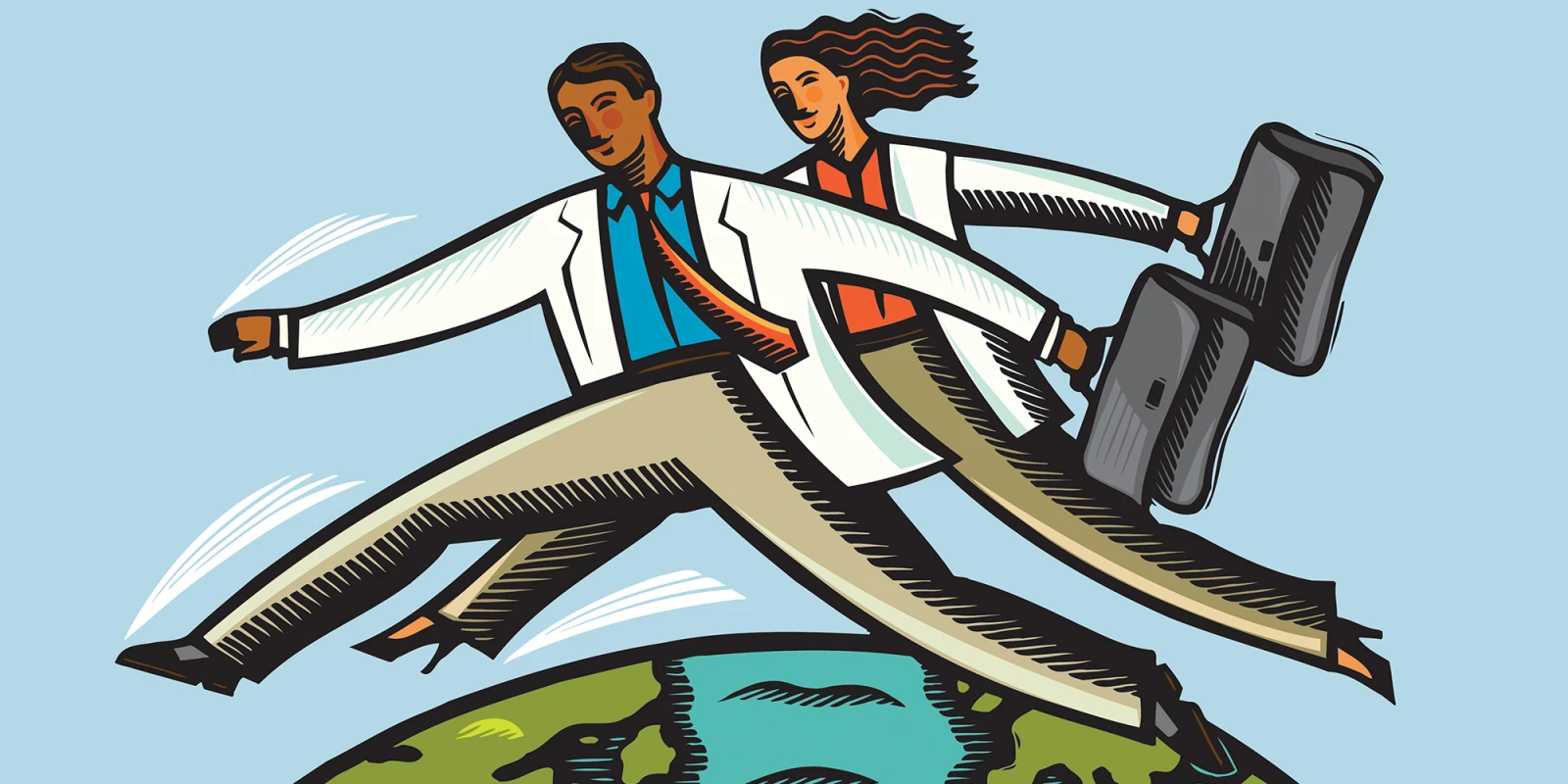
It finally happened. Five-thousand miles away from home, I found myself with a low-grade fever accompanied by piercing abdominal pain and diarrhea.
Assuming it was a simple traveler's diarrhea, I did the same things I recommend to all my patients when they travel abroad and have gastrointestinal issues. Encouraging myself and telling myself it would just "run its course," I made every attempt to keep myself hydrated and upbeat. However, as the days went on, I recognized my appetite was steadily decreasing and I was getting weaker. After going through my entire arsenal of antidiarrheals without improvement of symptoms, I knew this was more than I could handle alone.
As many people know and can attest to, doctors often make the worst patients. We prefer to self-diagnose and treat ourselves because "we know what's wrong." I, of course, had that same sentiment while sick overseas. However, after five days of self-treatment with worsening weakness and stomach pains which had me doubled over, I knew I could no longer take care of myself. As I headed to the local hospital, I grew more and more anxious; I did not know what to expect and if they would care for me the way I had "expected" to be cared for back home.
I met with the ward physician and introduced myself as a doctor, shaking his hand as the universal sign of respect. He gave me an all-knowing smile and asked what was wrong. I quickly rattled off my symptoms and my ineffective self-treatment plan. He quickly launched into action, ordering IV fluids as well as ORS (oral rehydration salts). As I watched the nurse place an IV, a sense of calm waved over me as I began to recognize I was in good hands. After receiving fluid resuscitation and a prescription for antibiotics, I left the hospital feeling assured that things would get better. Two days later I was symptom-free and, while my appetite still waned, I knew I was on the road to recovery.
I learned three lessons during my experience being sick and abroad:
- Medicine is a universal language and the human body is the same everywhere. Common things are common no matter where you are in the world. Though there may be physical and cultural differences, we all essentially have the same blood running through our veins.
- Physicians in other countries are just as good as the ones in your place of residence. Rest assured that the majority of physicians worldwide have been appropriately trained to deal with a plethora of issues. Though the medical advancements may not be similar, physicians in developing countries can treat patients as effectively as those in more advanced parts of the world.
- Respect goes a long way. Though I made it known I was a physician, I also recognized I was not in my country of residence. Rather than overstep, I allowed the ward physician to take control and make decisions based on his knowledge and expertise of the local medical system. I believe this created a smooth flow between us as I did not present as someone who wanted things to be done her way. I also recognized his respect for me as a colleague when he discussed his plan before sending orders.
Being sick in a foreign country is typically not the welcome you expect to receive. Language barriers, as well as differences in local customs, can quickly escalate an already anxiety-provoking situation. However, based on the great treatment I received (and a warning to be more diligent with my eating choices), I left my trip with a heightened respect for my fellow physicians. We must value our international medical colleagues as they are in the same fight as us to provide quality health care.
Have you ever been sick while overseas? How did you get through it?
Dr. Akua Ampadu is a hospitalist physician passionate about quality inpatient and outpatient adult care. As a survivor of work and life related burnout, she aims to provide tools necessary to live a life focused on self-care and self-advocacy. She also recognizes the importance of reading to one’s health and created Healing Words Foundation in 2016, a literacy-based charity focused on providing books to pediatric wards and outpatient clinics. She is active on social media.
Dr. Ampadu is a 2018–2019 Doximity Author.







